From tech giants mad about the EU's Digital Markets Act to Elon Musk's obsession with the poop emoji – Here's your March 21 news briefing
The EU rolled out its Digital Markets Act (DMA) last November.
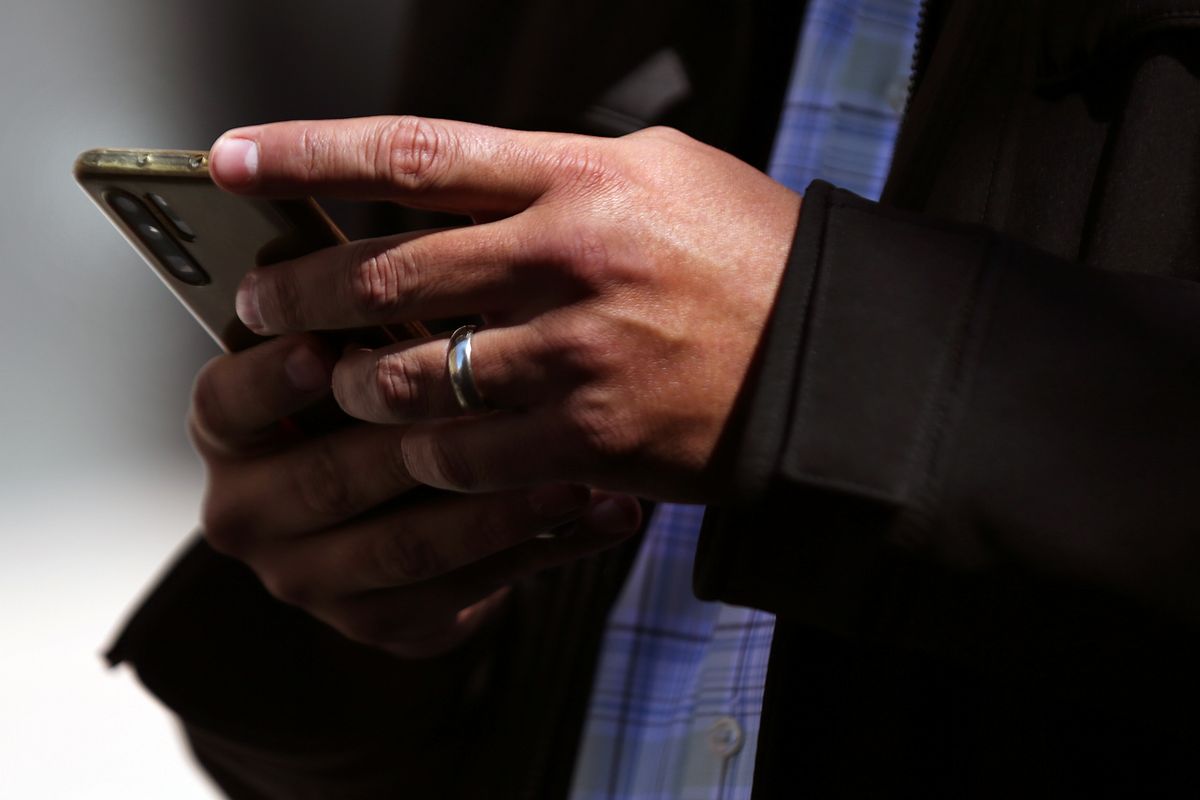
A few minutes every morning is all you need.
Stay up to date on the world's Headlines and Human Stories. It's fun, it's factual, it's fluff-free.
To start off, we're looking into:
The EU's Digital Markets Act
The backstory: The EU rolled out its Digital Markets Act (DMA) last November, which marked online platforms with over 45 million users as “gatekeepers” since they control data and access to platforms. The DMA set forth rules to prevent them from using unfair practices
Under the DMA, these gatekeepers have to follow a set of do's and don'ts. The do's include making sure messaging services can work together, and the don'ts prevent them from promoting their own stuff on their platform.
More recently: For example, In 2017, Google was accused of ranking its own shopping site, Google Shopping, higher than other similar sites. Now, that's a big no-no under the DMA. The goal is to ensure everyone has a fair shot at getting noticed on these massive platforms.
The development: Now, the EU is set to release a list of these gatekeepers, likely to include some big tech players like Google, Meta, Amazon, Apple and Microsoft, on September 6. But the EU is gearing up for a legal battle, as some tech giants aren't too happy about the DMA and have lobbied against it. Some fear that it could slow down innovation, while others think there's plenty of room for discussion and change.
Former Taiwan president to visit China
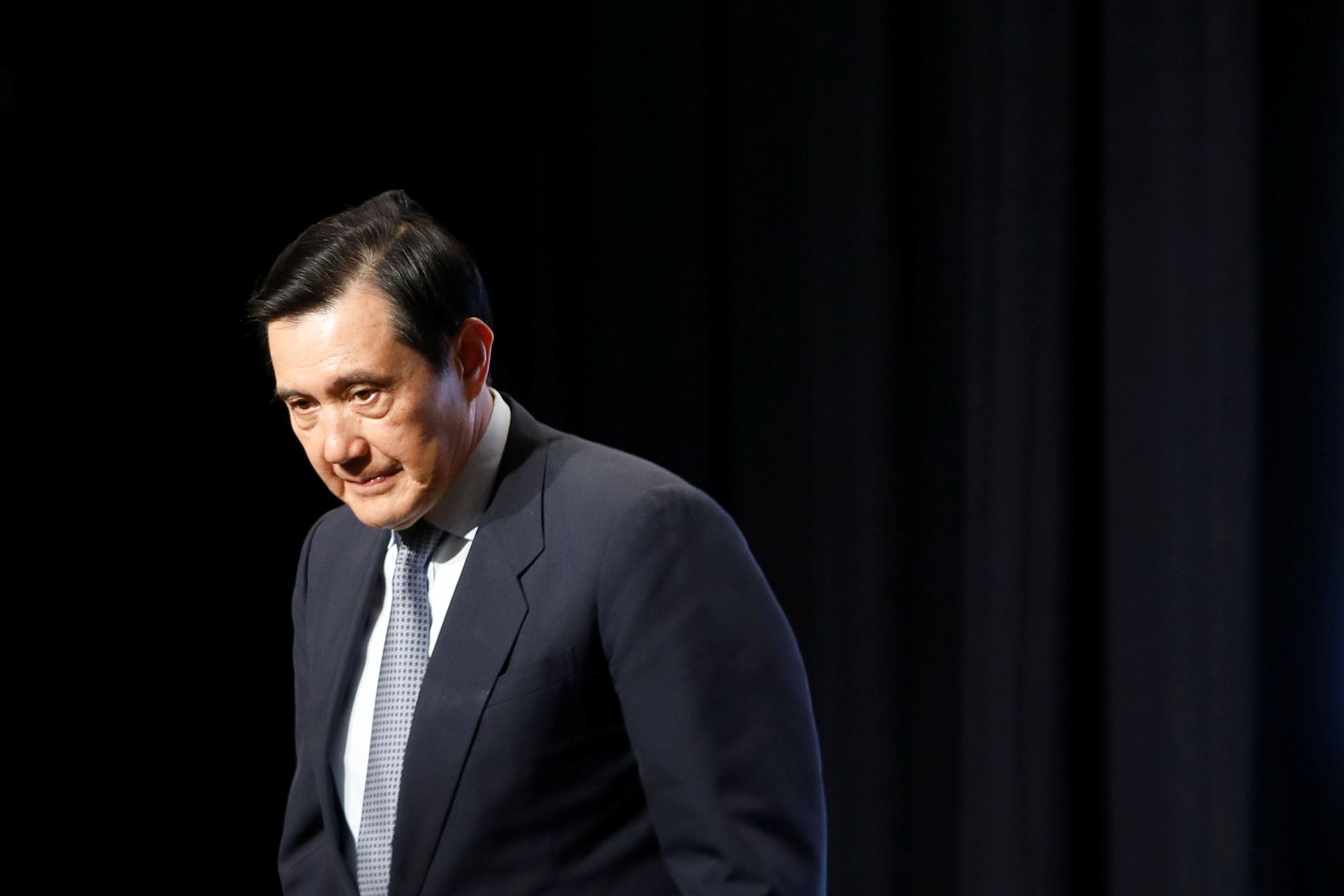
The backstory: When he was president of Taiwan from 2008 to 2016, Ma Ying-jeou tried to promote stronger ties with mainland China, specifically when it comes to the economy. He actually met Chinese President Xi Jinping in Singapore back in late 2015. But, Ma's attempts at building a trade deal with China fell through after it didn't get approval from the Taiwanese people, who staged major protests.
More recently: Tensions between Taiwan and China have been heightened since then-US House Speaker Nancy Pelosi visited the island last summer. In the following months, China conducted a few live-fire drills around the region that each lasted days, and Taiwan looked to strengthen its military ties with the US. President Xi Jinping has also made a few statements about reunifying with Taiwan.
The development: News just came out that Ma will visit mainland China next week. This is a big deal because it's the first trip to the mainland by a former or current Taiwanese leader since the Republic of China government relocated to the island in 1949. But Ma doesn't plan to visit Beijing. He is bringing a delegation of academics, students and his former presidential staffers to meet with their mainland counterparts and also plans to honor his ancestors' graves. The Chinese government has said it welcomes Ma into the country and offered any necessary assistance. He is not against meeting with any senior Chinese leaders but doesn't see that as likely. The purpose of the trip is more to foster dialogue between young people.
Deloitte's China woes
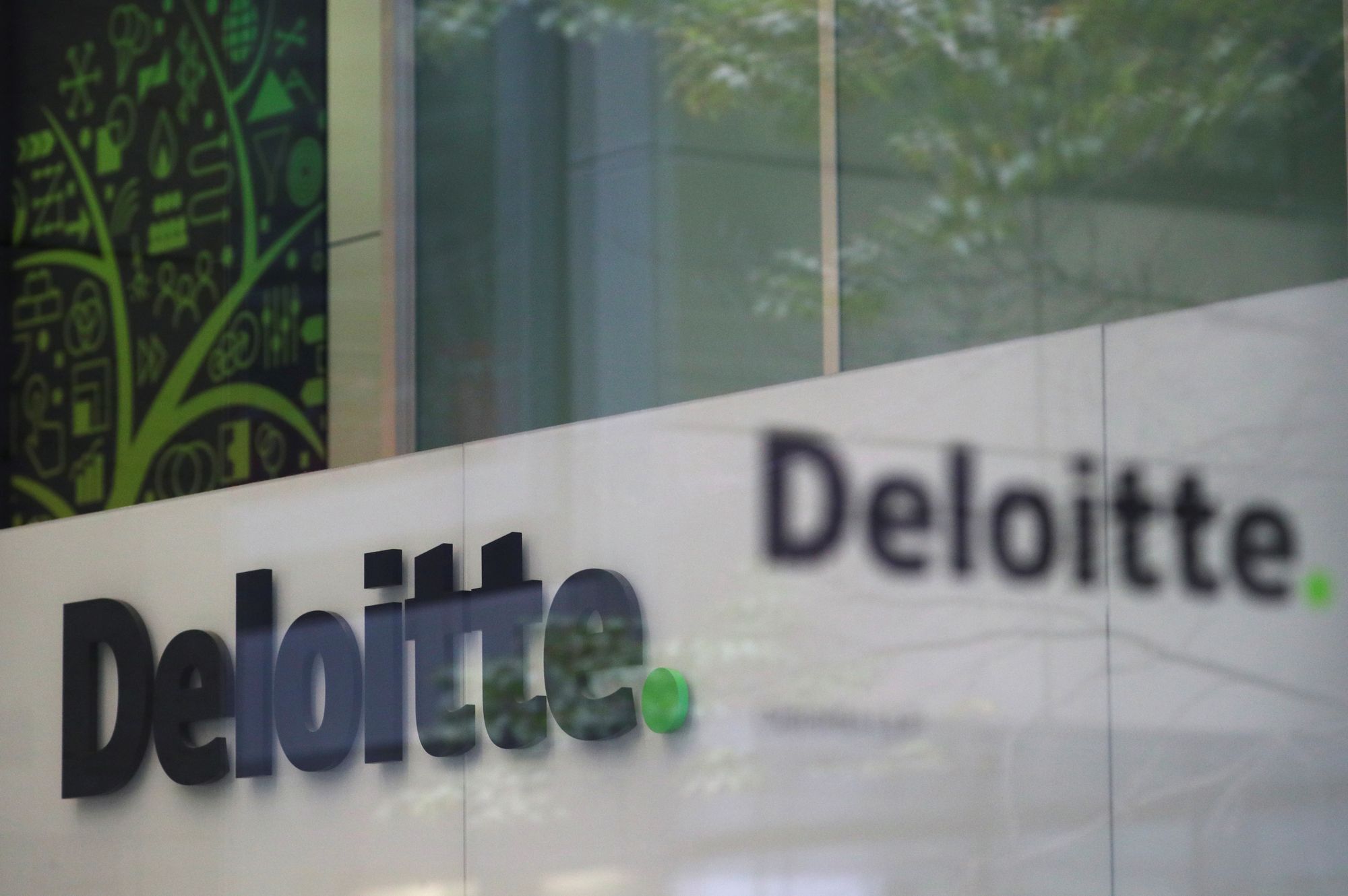
The backstory: Over the past few years, the "Big Four" accounting firms – Deloitte, PwC, KPMG and EY – have been under the microscope in China and Hong Kong. Why? Well, it all started after a wave of delayed financial results and clients defaulting on loans, mostly in China's rocky property sector. The Chinese government takes financial risk very seriously, so it's been cracking down on different parts of the financial industry to keep things in check.
More recently: The US Securities and Exchange Commission (SEC) came down hard on Deloitte's China arm last year, accusing the firm of being lax in its audit practices. Deloitte agreed to pay a US$ 20 million fine and make internal changes to bring it up to the international standard.
The development: Now, Deloitte's Beijing branch is in hot water with the Chinese authorities. Apparently, its audit of bad debt manager Huarong Asset Management didn't quite hit the mark, and the finance ministry found some serious issues. The ministry said that Deloitte "failed to maintain professional skepticism" and didn't pay enough attention to Huarong's financial activities – even missing the company's distorted accounting.
So, Deloitte's operations in Beijing have been banned for three months, and the auditor was slapped with a fine of 212 million yuan (US$31 million). Deloitte also had to give up its "illegal income" to authorities.
To end, we'll look into:
Could this be the answer to space junk?

We have a space junk problem.
Humans send stuff into space all the time, specifically satellites, for aiding technology here on Earth. And after these pieces of space tech can't be used anymore, we often just leave them floating around in Earth's orbit. There are also smaller pieces of junk, like debris and paint flecks, that fell off of other space equipment floating around out there.
Right now, about 2,000 active satellites are orbiting Earth, but there are also 3,000 dead ones. And there are around 34,000 pieces of junk bigger than 10 centimeters, plus millions of even smaller pieces. All of these things could cause problems if they hit anything else.
But these college students may have a way to help.
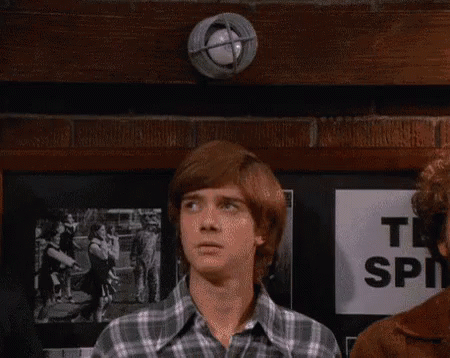
At Brown University, a team of engineering students built a satellite using 48 AA batteries and a US$20 microprocessor typically used to build basic robots. And they sent their design (the SPUDNIC) into space on a SpaceX rocket last year. They also attached a 3D-printed sort of sail so that it would be dragged back down to Earth sooner. It was the size of a loaf of bread and ended up costing just $10,000 in total. The satellite totally worked once it got to space, and they estimate it will be out of orbit in just five years versus the typical 25-27 years if it didn't have the sail.
"You can see in the tracking data that we're visibly below everybody else and accelerating away from them," Rick Fleeter, a professor of engineering at Brown, explains. "You can see that our satellite is already descending toward reentry, whereas the others are still in a nice circular orbit higher up."
Since tracking began last May, the students' satellite has traveled down to 470 kilometers above Earth. Other pieces of equipment from the same SpaceX rocket are still around 500 kilometers (or more) up.
"What this mission showed was more about how you realize it – how you build a mechanism that does that, and how you do it so it's lightweight, small and affordable," said Fleeter.
In other news ...
📈Stocks: MSCI’s global gauge of stocks is up 0.83% at 2678.29 at the time of writing.
- Dow Jones jumped 1.20% to 32,244.58.
- Nasdaq Composite rose 0.39% to 11,675.54.
- S&P 500 gained 0.89% to 3,951.57.
- Hang Seng Index lost 2.65% to 19,000.71.
🧠Some quick factors to bear in mind:
- US stocks rallied on Monday after news that Credit Suisse was taken over by UBS, which gave investors hope that more action would be taken to restore confidence in the banking system.
- After taking a big hit last week, bank stocks bounced back. The SPDR Regional Banking ETF (KRE) went up by over 1% after falling 14% last week. PacWest and First Citizens rose over 10%, while First Republic plunged by 47% after S&P Global lowered its credit rating for the second time in a week.
- All eyes are on the Fed's two-day meeting starting Tuesday. The decision on interest rate hikes is especially important after all the recent instability in the financial sector.
- China stocks didn't do so great on Monday, especially in the banking sector. The Hang Seng index saw the most losses in the Asia-Pacific region, falling by 2.7%. The Hang Seng Tech index also sank by 2.8%.
- Bank giant HSBC was hit the hardest, falling over 6%. Even the popular hotpot chain Haidilao and Hansoh Pharmaceutical didn't do so well.
- On the other hand, Chinese tech giant Baidu rose by almost 1% after it tested its competitor to ChatGPT called Ernie.
👄Some comments and chatter:
- “People who are holding uninsured deposits at regional banks are nervous and the banking system is based on competence, and trust. You’re not going to put your life savings somewhere, if you’re not 100% confident that it’s going to be there when when you need it,” said Eric Diton, president and managing director of The Wealth Alliance.
- “We expect a 25 bp hike and higher dots in the dot plot. 50 bp would be reckless, but no hike would suggest the bank crisis supplants the fight against inflation. 25 bp seems just right. Of course, our view from midtown Manhattan may not be quite the same as the Fed’s from central DC,” said Chris Low, chief economist at FHN Financial.
🛢Oil:
On Monday, oil prices bounced back after taking a hit and falling to their lowest level in 15 months. Traders had been worried about risks in the global banking sector, which could lead to a recession, meaning less demand for fuel. US crude rose 1.4% to US$67.64, and Brent gained 1.1% to US$73.79 per barrel.
👛Bitcoin: At the time of writing, Bitcoin is down 0.77% at US$27,841.20.
🤝Xi arrives in Russia: China has been pushing for peace between Russia and Ukraine while staying neutral and maintaining strong ties with Russia. Xi started his trip to Russia on Monday, meeting with Putin. Ukraine is expected to be a main discussion topic during his visit.
👉Putin and the ICC face off: Last week, the International Criminal Court accused Russia and Putin of war crimes and possible crimes against humanity for how it's been treating Ukrainian civilians. It issued an arrest warrant on Putin for these charges. Now, Russia has decided to open its own criminal investigation into the ICC and its officials in a show of defiance.
📩France's no-confidence vote: France is pushing its controversial pension reform bill through parliament without a full vote. On Monday, the French government held two no-confidence motions against Macron, but both fell short, and he remains in power. The opposition is now looking to appeal the bill to the country's constitutional council to be blocked.
💣North Korea simulates nuclear counterattack: The US and South Korea have been conducting joint military drills and exercises after North Korea ramped up its military drills. In response, North Korea conducted its fifth missile drill this month over the weekend. It said that this drill was supposed to simulate a nuclear counterattack.
🚓Pakistani police arrest Khan supporters: Last week, police in Pakistan attempted to arrest former PM Imran Khan ahead of his court date. Supporters outside of his home clashed with the cops, and some of them ended up in police custody. Now, Khan is requesting to appear in court virtually for his own safety.
😦Thai capsule found: Authorities in Thailand have been searching for a missing radioactive capsule that sparked health fears. Welp – they found it. Likely crushed … they think. The location was determined when radioactive readings were detected at a metal foundry, but it's unclear if the material leaked or the capsule was completely destroyed in a closed-loop system. So far, no one has reported health issues, but people are pretty pissed.

💧Somalia drought report: Last year, Somalia suffered its longest recorded drought. New data shows that an estimated 43,000 people died during the drought, and half were likely under 5 years old.
📄COVID's origin: The debate about where COVID originated kicked off again last week when the Wall Street Journal said the US Energy Department had determined, not too confidently, that COVID probably stemmed from a lab leak in China. This argument has been denied repeatedly by Beijing. US President Joe Biden has signed a bill that will force the national intelligence director, Avril Haines, to declassify information regarding COVID's origin.
📢Protests in South Africa: South Africa has been dealing with economic insecurity, with about a third of South African adults unemployed. People there are frustrated with the governing African National Congress party. On Monday, thousands protested in South Africa's big cities to call for President Cyril Ramaphosa to resign.
📦Amazon layoffs: Amazon has already had a round of layoffs, lasting from November to January and resulting in over 18,000 lost jobs. It just announced that it would cut 9,000 more jobs, looking to streamline costs even more.
☕New Starbucks CEO: Back in September, Starbucks announced a CEO turnover from Howard Schultz to Laxman Narasimhan. Now, Narasimhan has officially taken over, two weeks earlier than expected.
🌊Ocean heat waves: In 2013, a massive marine heat wave known as 'The Blob' formed off the coast of Alaska and expanded down to Mexico deep underwater, but scientists weren't aware of what was happening. Now, new modeling has been created by researchers showing that marine heat waves can happen deep underwater, sometimes at the same time that heat waves affect the ocean surface or even when there's no detection from above at all.
💉Promising bird flu vaccines: A strain of bird flu has been affecting animals all over the world, but human cases are still very rare. But if there's ever a human outbreak, flu vaccine makers are saying they could create a bird flu vaccine for people very quickly. Executives at three vaccine manufacturers – GSK, Moderna and CSL Seqirus, told Reuters they're already developing or testing sample human vaccines as a cautionary measure.
😁Finland is happy: On Monday, to celebrate International Happiness Day, the UN released the official World Happiness report, which ranked Finland in the happiest spot for the sixth year in a row. Hmm … what's Finland's immigration procedure like?
🎤Bad Bunny was a bad bunny: Latino superstar Bad Bunny is getting sued by his ex, who sent him a breathy "Bad Bunny, baby" over voice recording, which he later used in some of his songs. Her lawsuit says her "distinguishable voice" is getting so much attention it's causing her anxiety with all the notoriety. Oh, and that he's using it without her consent.

💩Twitter press email response: Twitter's communications team has been radio silent since last fall after massive layoffs and hasn't responded to press inquiries. The press email address just reopened for messages. But Elon Musk says it will automatically reply to emails with a single poop emoji. So cool.

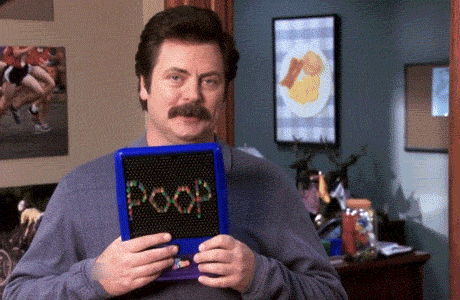
Written and put together by Joey Fung, Vanessa Wolosz, Shebby Farooq and Christine Dulion




Comments ()